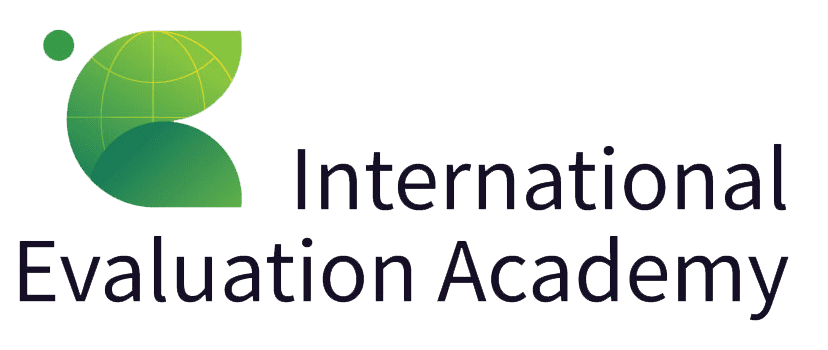
The Academy
Our Story
Evaluators, commissioners, parliamentarians, and decision makers gathered at an International Development Evaluation Association (IDEAS) Global Assembly from September 30th to October 4th, 2019. They approved a Prague Declaration that supported the establishment of an International Evaluation Academy (IEAc). Subsequently, an international survey of evaluation practitioners commissioned by the International Development Association (IDEAS) confirmed overwhelming support for the initiative. The Academy was formally registered In February 2022 and its first formal board identified. By June 2022 the IEAC welcomed its first Executive Committee.
Our Purpose
The International Evaluation Academy (IEAc) is an inclusive, ambitious, and above-all activist venture designed to promote evaluation excellence, advocacy, social relevance, scientific credibility, and cultural responsiveness. The Academy is dedicated to evaluation transformation, creativity, and innovation. Transformation comes first: the IEAc exists first and foremost to identify, encourage, and support evaluation initiatives geared to evidence-based and multi-perspective transformational change.
The Academy embraces the vision of Agenda 2030, the Sustainable Development Goals, and the Paris Agreement, and it aspires to make transdisciplinary, value-driven evaluation play an influential role in the promotion of global justice and social, economic, and environmental sustainability. It stands for sound, objective, professional, scientific, and culturally responsive evaluation in the public interest. It is not partisan, sectarian, or politically motivated.
The Academy reaches out to organizations in the scientific, academic, and social research fields. It endeavors to realize the vision of a world where evaluation practice and evaluative thinking are an integral part of all governments, civil society, and private sector efforts. It seeks to expand the reach of evaluation across borders and across all sectors of society towards a just, sustainable world where ‘no one is left behind’. It favors evaluation approaches that respect nature, protect human rights, and promote gender equality.
Governance
The organization is light – a virtual organization of volunteers supported by a Secretariat. It acts ‘glocally’. The two-tier corporate organization consists of: (i) a Board of Directors (Trustees) which sets policy directions and provides oversight over all its work; (ii) Friends of the Academy who may become Evaluation Scientists that work on Academy initiatives and Evaluation Scientific Leaders that lead significant Academy initiatives, contribute to committees and make the IEAc run.
Board Committees
The Board operates through an Executive Committee comprised of President, President-Elect and Past President, Treasurer and Secretary General and four main committees:
A Membership Committee, dealing with the admission of Friends and ethics.
A Policy Committee, tackling operating principles and policies.
A Programme Operations Committee, proposing strategies, collaborative work areas, quality assurance and enhancement process, and tracking Academy interventions.
A Partnership and Outreach Committee, focusing on partnerships, sponsors of the Academy and fundraising
Members serve as non-voting.
Friends of the Academy
Friends of the Academy form the basis for the Academy’s network. Friends are kept abreast of the Academy’s work and are encouraged to engage as an Evaluation Scientist or Evaluation Scientist Leader or in other ways provide support to the Academy and its endeavors. Friends demonstrate the Academy’s values and are involved in evaluation or a related field (e.g. development). Friends are the first step to becoming an Evaluation Scientist or Evaluation Scientist Leader. Friends are requested to renew their membership yearly to signify continued interest.
IEAC Evaluation Scientist Leader
The Scientist Leader, with the Board’s support, leads an activity that includes an act of transformation and/or activism that is approved by the Board and take responsibility for its implementation and completion. This title is associated with a specific effort and can be maintained after the completion of the activity.
IEAC Evaluation Scientist
The Evaluation Scientist self-organizes to work on an approved project under a Scientific Leader, taking responsibility for actively participating in its implementation. This title is associated with a specific effort and can be maintained after the completion of the activity.
Our Mission
We volunteer to contribute to the transformation, influence, and professionalization of scientific evaluation and practices to address economic, social, and environmental sustainability challenges. We use participatory practices and partnerships with diverse sectors of society to build, learn, share, and use a credible body of knowledge about the processes and consequences of systems and interventions aimed at building the resilience and sustainability of the world.
Our Vision
The Academy embraces the vision of Agenda 2030 and its Sustainable Development Goals, as well as the Paris Agreement in promoting a world moving away from its current destructive path to one that is regaining climate and ecosystem resilience and health and promoting sustainable livelihoods for all, with evaluation supporting evidence-informed transformational change. It is guided by the Global Evaluation Agenda and Prague Declaration on Evaluation for Transformational Change visualizes a world where evaluation practices are an integral part of all governments, civil society, and private sector development efforts.
